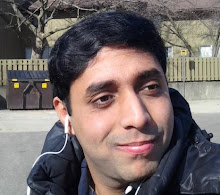....Japan Beckons....Though the excitement level was quite high, it did not fill to the brim of the basin. With a pinch of dissatisfaction, I started the check-in formalities at IGI Delhi(abbreviated form of Indra Gandhi International, Airport) on 2009/12/07 (Japanese style of writing dates...), reasons being, one was, I was leaving INDIA, my motherland (cough!! cough!! :P ;) and the other being, I'd carried considerably excess baggage 'n' so was a bit apprehensive about getting caught at the check-in counter... (infact a lot apprehensive !!). The weight limit per person was 50 kg. (Thanks to MARUTI SUZUKI for increasing the weight limit by 15 kg by striking a deal with Thai Airways. On producing the ID card, the cost for 15 extra kgs is waived). I had close to 60 kg and had the least clue as to which thing inside the baggage should I throw out, in case, I am ordered to do so. The excess baggage cost is a mind-boggling Rs 1360/- per kg. I was not in my senses at all and was the least excited (and the most apprehensive) among our group (given the very fact that everyone had carried within safe limit. Courtesy – my poor planning). The check-in started at 10 am IST on 2009/12/07. We were 8 of us. So, we (infact “I”) decided to go for a group check-in. (which meant that the baggage weight must not exceed 50X8 = 400 kg putting all ours together). To all our elation, it did shoot up by a few kgs. But the decent educated looks on our faces (my hair was not combed though :P) made the girl in the counter overlook the excess baggage weight (FYIP, she looked beautiful ! ! !). She handed over the boarding passes and the passports to us with a smiling face. Huh! I became 75% lighter both physically & mentally, more so because of not getting caught than because that she smiled at me. We received our boarding passes for both the flights. DELHI-BANGKOK & BANGKOK-OSAKA.
Immigration formalities were over. Visas were stamped at another counter. Final frisking was done. Did not have even a glass of water right from the morning. So, my stomach badly needed some food. CCD (Cafe Coffee Day) came of a good help serving me with a veg-pattys on my request while one of THAI AIRWAYS’ sweet voices announced its departure to Bangkok from Gate 10.
The aero-bridge took us all out of Indian-Glossy airport floors into the Air-craft once for all for the next 365 days. ;) Not so good looking air-attendants welcomed us in with their fake smiles (for which they are being paid in lacs). ;) A confused mob roamed inside the air-craft to get settled onto their seats after stuffing their so-called "7 kg" (but 15 min. kg) baggage onto the shelf on the top. I had no place to stuff in mine. So, I was allowed to keep my baggage on the business class shelf. (Bonhomie right at the start...) Finally, we were settled. The doors of the air-craft were closed. The TV in-front informed us about the 4 hour flight time and the route that it would take to reach Bangkok. (It was to fly over Varanasi, Kolkata, Yangoon & reach Bangkok) It was 12 noon IST (1:30 pm Bangkok local time). The turbines were on, the announcements were multi-lingual, to cater to all nationalities. Finally, the air-craft reached the run-way after a few metres of taxiing (The final ride on Indian Roads for the next one year ;)). The air-craft picked up speed, took off from INDIAN sands (or roads whatever) bidding a good-bye to INDIA (on 2009/12/07 12:05 PM IST). "Bubyeee INDIA"....!!
The seat-belt sign was off once the flight steadied itself into the air. Catering kicked-off and went on for the next one-hour. We were served with Juices, tea, coffee, veg-food, non-veg food etc.... I had something and settled myself to miss INDIA for an hour stretching the push-back and hearing to ear-phones. About 90-odd minutes passed when an announcement shook me up from my deep-sleep. We were just half an hour from Bangkok and our descent had started. At 3:55 pm IST (5:25 pm Bangkok Local time) we landed on the Suvarnabhumi International Airport, Bangkok. Again, the aero-drome took us to the glossy-floors of Bangkok Int'l Airport. Huh! Cloud Nine ! ! Finally, I stepped into a different county for the first time in my life. :) To my awe, the air-port was so huge and very very lengthy that we had a fear of getting lost inside, despite the availability of lot of help-desks across the air-port. It was an awesome place more so for the reason that this being my first non-indo place than for the reason that it itself was. It had some 4 floors. Hell lots of shops, hundreds of flights arriving and departing, frequent announcements, this airport mainly serving as TRANSIT for passengers travelling east and west of the globe. We became excited and started clicking random photographs at the air-port. We had some 6 hours left for our next flight. So, we decided to roam around Bangkok city and enquired about it at the Help-desk. But they denied saying that it would be peak-hours in the city and the return would become tough in the night. So, we decided to roam 'n' explore Bangkok Airport. One could find people from almost all nations here. So, variegated and assorted was the crowd. We were not able to fully explore the airport. It was so damn lengthy on all sides, that the Airports Authority have installed hundreds of travelators (not escalators, please note the picture below. This is used for easing the travel on the same plane without walking) inside the airport.

We roamed and roamed the airport till our legs badly wanted rest and our stomach - food. We decided to barge in a restaurant to have some food. Noodles was the only veg-item that was available in the menu (other than breads). So, I ordered one and then had one coffee. The currency here in Thailand is Baht. We did not have any. To our fortune, they accepted Indian Rupees. So, I paid the bill in INR itself (For your GK 100 INR = 45 Baht).
At 11:30 PM, 2009/12/07 Bangkok local-time, we checked in and boarded the next flight bound for Osaka. This flight had less passengers, better facilites, ‘better’ people to serve us too (you know, what I meant) ;) The flight took off to Osaka at 11:50 pm from Bangkok. Once the plane steadied itself, we were served with Juices and breads, as usual. After having it, I flipped thro' some movies on the TV in-front and then finally decided to sleep for a while. When I made myself comfortable and started to take a doze, lights were on, music too was on and “Ohayo Gozaimasu” gestures kicked off. Breakfast was served. For your information, the time was 2 am IST (which is 5:30 am O'saka time). That was totally a strange timing to have breakfast while the whole INDIA was sleeping deep. But, still I had it. (I never say NO to foods).
Finally, at 6:45 am O'saka local time at 9 deg. C, our flight landed onto the Kansai International Airport, Osaka. "Welcome to Japan, dude. Finally, you are there" - I told to myself and proceeded unknowingly with the mob. I had a really crazy feeling that our flight would crash land onto the Pacific Ocean, for the reason that, it had almost touched the ground, but still, I was able to see only water around. I almost, started to search for my Safety-Jacket with a slight regret of not listening to the initial safety instructions. But, we landed safe. The airport was an island in itself. The view of the seas from the airport was mind-boggling. “Huh! I am in a foreign country” – I confirmed. An over-head tram took us from the arrival zone to the baggage claim zone, where we completed our immigration check and finally claimed the baggage. Was elated to see all three baggages arrive O'saka safe.

We had to wait for one of our colleagues from SUZUKI, Japan to arrive and pick us up to our destination. In the mean-time, we clicked some random photographs and started reading (infact admiring) the people of Japan & Japan itself. "5S" (The cleanliness mantra) - Japan has to be the real example. Extremely clean country. No pollution at all. Not a speck of dust could I witness. Right from the time, we got down from the air-craft, we were receiving over-dosages of “Ohayo Gozaimsu” & “Konnichiwa” (meaning ‘A very good morning’) with friendly smiles from even strangers (Girls included. Beautiful ones too. Oops! Everyone looked beautiful, infact. But, one thing I noted here was, every girl looked alike. Straightened hair, eyes open 10 deg., unusually fair, chubby, cute, very-short skirts, long stockings, high heeled shoes. Japanese husbands, probably, would be having tough times at Market places during weekends in finding out their wives in-case they get lost. Same could be the case for Japanese wives too, because Men, too did not have much differences with each other in terms of features. Everyone had a long-hair standing thorn-sharp on their heads, eyes open 5 deg., decent-looking trousers, well-polished shoes). Coming back to the gesture over-dosage, “Konnichiwa” & “Ohayo Gozaimsau”. I liked it. This bonhomie is another speciality in Japan. People here are genuinely friendly and helpful. Here, they never treat us like strangers. Of course, they stared at us for quite a while because we looked different. But, when it comes to helping, they lent us with great pleasure. One doesn’t feel the isolation here.

Alas at 10:30 am Local time, Nakamura San (Suzuki colleague, who happened to be a female, for our misconception) [
“San” – Commonest of Words used in Japan. This is a respect word which generally follows the name of the person. It substitutes Sirs/Madams. So, this gives one the authority of using Names for calling even a highly revered gentleman but for a San to follow without fail] arrived and informed us that it would take about an hour to reach the destination and electric train is going to be the means. We stepped out from the airport into the winds of Japan that blew cold at 10 deg. C at 10:45 am local time on 2009/12/08 and started our way-on to the Kansai Kenshu-Center [KKC, Osaka] (which was slotted for our stay, dining & Japanese language & lifestyle training for the first 45 days.)
The analysis of Japan en-route the KKC and more on the Life-style & people of Japan & interesting happenings in the subsequent ones....:)


















